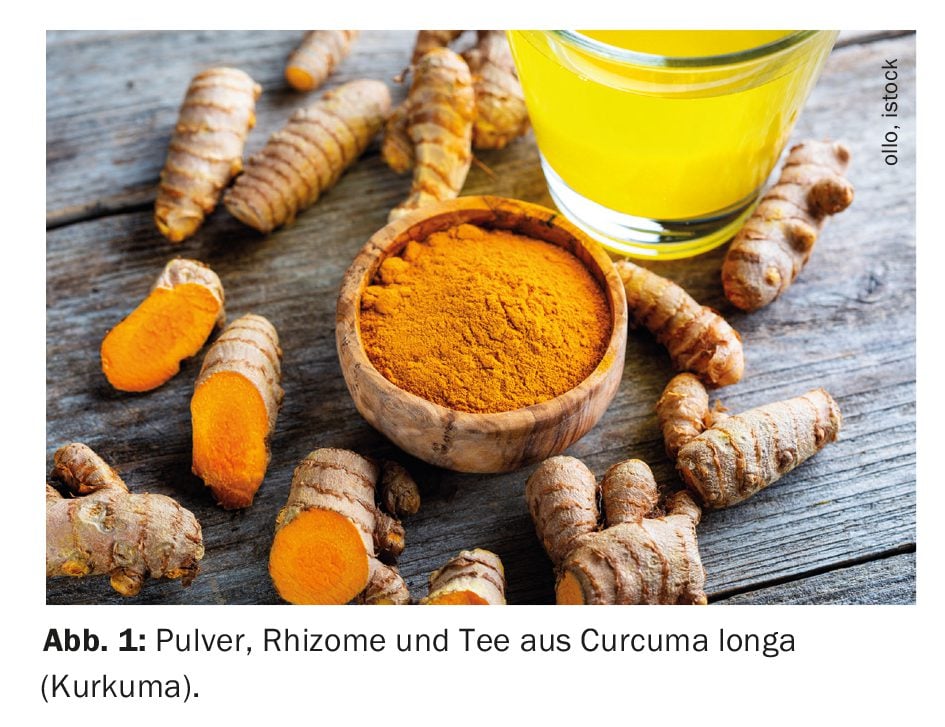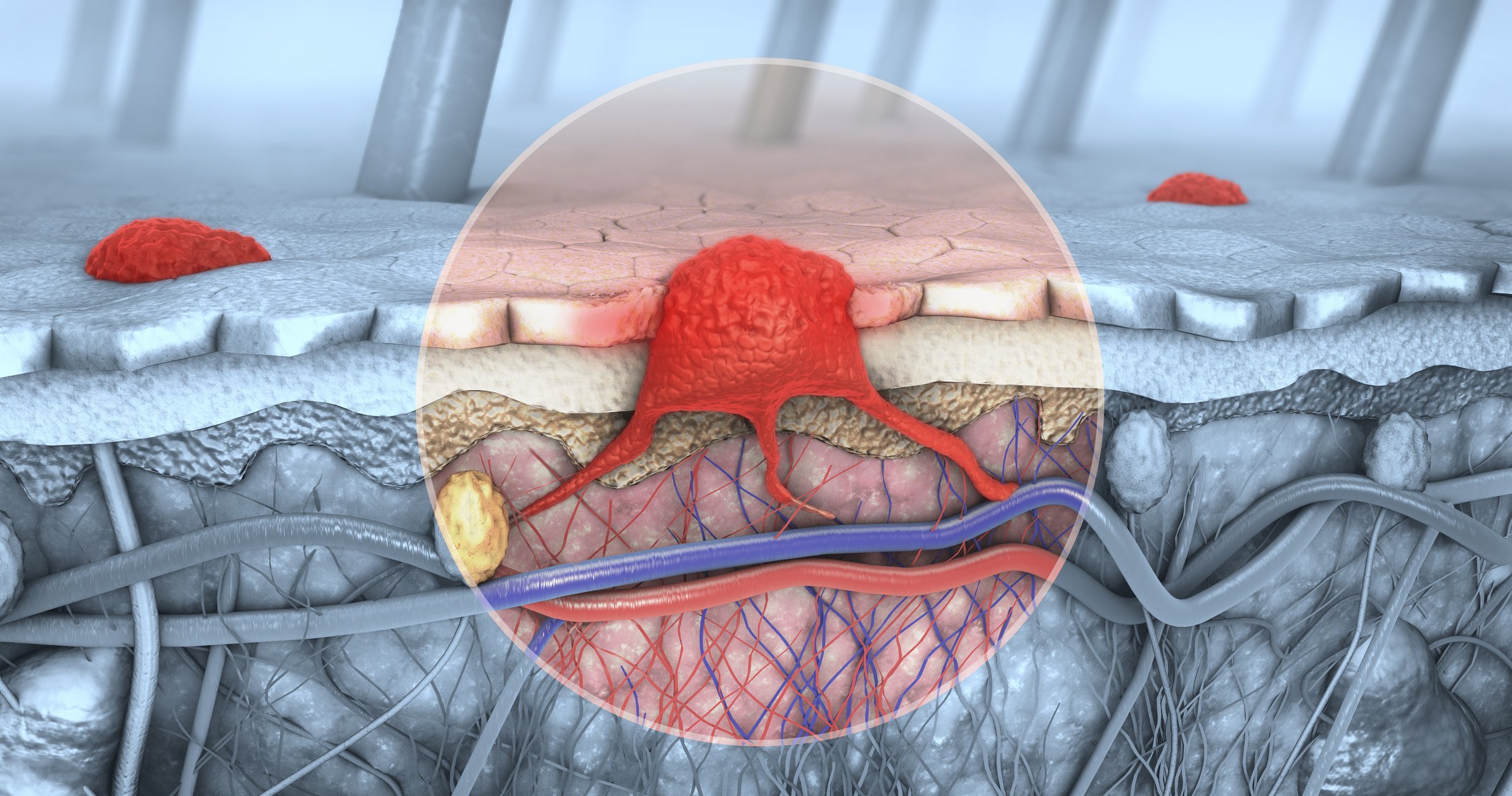Ulcerative colitis (UC) is a chronic inflammatory bowel disease (IBD) characterized by recurrent inflammation of the mucosa of the colon. The worldwide prevalence of IBD is increasing and patients often suffer from severe symptoms such as diarrhea, abdominal pain, rectal bleeding, extraintestinal manifestations and an increased risk of colorectal cancer.
(red) The complex pathophysiology of CU is attributed to a combination of genetic and environmental factors that lead to dysregulation of the immune system. This includes an increased activation of inflammatory cytokines, an imbalance between regulatory and effector T cells and a dysbiosis of the intestinal microbiota.
Current treatment strategies aim to suppress the inflammatory response in order to improve clinical symptoms and achieve remission. Commonly used drugs include aminosalicylates, immunosuppressants and biologics. Despite these therapies, a significant proportion of patients continue to suffer from recurrent flare-ups and around 15% of those affected have to undergo a partial or total colectomy during the course of the disease. In addition, immunosuppressive drugs are associated with the risk of serious side effects such as infections and an increased risk of cancer.
As many patients are dissatisfied with standard therapy or have concerns about side effects, more and more patients are turning to complementary and alternative therapies. Herbal medicines are one of the most commonly used approaches in complementary medicine. Studies have shown that between 19% and 54% of CU patients use herbal medicines. However, many patients do not disclose the use of these remedies to their physicians, and many physicians do not have sufficient information or clinical data to provide sound advice.
Previous reviews and systematic reviews have focused on the most commonly used herbal preparations and have often included studies with inactive patients or observational studies. The work discussed aims to present a comprehensive systematic review and meta-analysis of RCTs investigating the efficacy of herbal medicines in active ulcerative colitis.
| The use of herbal medicines for the treatment of chronic inflammatory bowel disease (IBD), particularly ulcerative colitis (UC), is gaining popularity, although scientific evidence on their efficacy is often limited. This analysis presents a systematic review and meta-analysis of randomized controlled trials (RCTs) investigating the efficacy of herbal medicines in active ulcerative colitis. A comprehensive literature search identified 28 RCTs evaluating 18 different herbal extracts. The meta-analysis showed that indigo naturalis (IN) had a significantly higher clinical response rate compared to placebo (RR 3.70; 95% CI 1.97-6.95). Curcuma longa (CL) showed a higher clinical remission rate (RR 2.58; 95% CI 1.18-5.63) and significant improvements in endoscopic parameters. In contrast, no significant differences could be demonstrated for Andrographis paniculata (AP) compared to placebo. These results emphasize the potential of Curcuma longa as an adjunctive therapy for active CU, while further research is needed for Indigo naturalis andAndrographis paniculata to better understand their efficacy and safety. |
Materials and methods
This systematic review was conducted according to the PRISMA** guidelines. No prior registration was performed. The literature search was conducted until September 2022 in several databases, including Medline (PubMed), EMBASE, the Cochrane Library and Web of Science. A specialist librarian created the search strategy, which included key terms such as “ulcerative colitis”, “herbal medicines”, “herbal extracts” and “randomized controlled trials”.
** Preferred Reporting Items for Systematic Reviews and Meta-Analyses
Studies were included if they met the following criteria: (1) they studied human patients with active ulcerative colitis (mild, moderate or severe); (2) they were prospective controlled trials with a placebo or conventional treatment arm; and (3) the intervention consisted of an herbal medicine. Studies were excluded if (1) the study was conducted in animals, (2) the patients were in remission, or (3) the studies were case reports, case series, narrative reviews, or biochemistry models.
The primary endpoints were clinical remission and clinical response. Secondary endpoints included endoscopic response rate, endoscopic remission and safety of use. The selected studies were reviewed by two independent reviewers, and a third reviewer ruled on any disagreements.
Forest plots were created for meta-analysis, and relative risks (RR) with 95% confidence intervals (CI) were calculated using random-effects models. Heterogeneity between studies was assessed qualitatively and quantitatively using the I² statistic and chi-square test.
Results
A total of 1227 potential studies were identified, of which 28 RCTs met the inclusion criteria. These studies investigated a total of 18 different herbal medicines for active CU. The key findings of the meta-analysis and systematic review are summarized below:
Curcuma longa (turmeric, Fig. 1): Curcuma longa (turmeric) is a widely used herbal medicine extracted from the turmeric root. It has been used for centuries in Traditional Chinese Medicine (TCM) and Ayurvedic medicine. Clinical studies have shown that turmeric has anti-inflammatory, antioxidant and anti-carcinogenic effects. Eight RCTs investigating the effect of turmeric in active CU were identified.
In four studies, turmeric, as an add-on therapy to mesalazine, showed significant benefits in clinical remission and endoscopic response compared to placebo. For example, Banerjee et al. (2021) reported that 44% of patients receiving turmeric were in clinical remission after six weeks compared to 0% in the placebo group (p<0.01). Endoscopic remissions were also observed more frequently in the turmeric group (35.3% vs. 0%; p<0.001). Further studies confirmed these results. A meta-analysis of the six turmeric studies showed a significantly higher rate of clinical remissions (RR 2.58; 95% CI 1.18-5.63) and endoscopic responses (RR 1.56; 95% CI 1.08-2.26).
Side effects were minor and occasionally included gastrointestinal complaints such as flatulence and nausea. Serious adverse events were not reported in any of the studies.
Indigo naturalis: Indigo naturalis, a traditional Chinese medicine remedy, was investigated in two RCTs with a total of 87 patients. The meta-analysis showed a significantly higher clinical response rate in the treatment group compared to placebo (RR 3.70; 95% CI 1.97-6.95). These results suggest that indigo naturalis may be beneficial in the treatment of active CU. Other small observational studies also support these results.
However, serious side effects such as pulmonary hypertension and liver damage have been reported in connection with indigo naturalis. In a Japanese study, eleven patients developed pulmonary hypertension, which resolved after discontinuation of the drug. Therefore, Indigo naturalis should be used with caution until further safety data are available.
Andrographis paniculata: Andrographis paniculata, a herb commonly used in Ayurvedic medicine, was investigated in two RCTs. However, a meta-analysis showed no significant differences in clinical response rate (RR 0.95; 95% CI 0.71-1.26) or clinical remission (RR 1.31; 95% CI 0.86-2.01) compared to placebo. This suggests that the doses currently used may not be sufficient to achieve a significant effect. However, no serious side effects were reported, indicating that the drug is well tolerated.
The systematic review and meta-analysis provides a comprehensive overview of the efficacy and safety of herbal medicines in active ulcerative colitis. The results suggest that Curcuma longa in particular is promising as a complementary therapy to standard treatment, while further research is needed for other herbal medicines such as Indigo naturalis and Andrographis paniculata.
Curcuma longa showed significant benefits in clinical remission and endoscopic healing. These results suggest that turmeric could be used in combination with mesalazine as an effective adjunctive therapy for active CU. The antioxidant and anti-inflammatory properties of turmeric could play an important role in improving the intestinal mucosa and reducing inflammation.
Indigo naturalis also showed promising results, but there are concerns about its safety. The reported cases of pulmonary hypertension and liver damage require more thorough investigation before Indigo naturalis can be recommended without reservation. Patients taking this drug should be carefully monitored.
In contrast, the studies on Andrographis paniculata showed no significant benefits compared to placebo. Higher doses may be required to achieve an effective therapeutic response.
Conclusion
The results of this systematic review suggest that herbal medicines, particularly Curcuma longa, may be a valuable addition to the treatment of active ulcerative colitis. Given the growing popularity of herbal preparations, it is important that further large-scale, well-designed clinical trials are conducted to better understand the efficacy and safety of these agents and integrate them into clinical practice.
Source: Iyengar P, Godoy-Brewer G, Maniyar I, et al: Herbal Medicines for the Treatment of Active Ulcerative Colitis: A Systematic Review and Meta-Analysis. Nutrients. 2024 Mar 23;16(7): 934. doi: 10.3390/nu16070934.
PMID: 38612967; PMCID: PMC11013716.
Detailed bibliography from the publisher.
PHYTOTHERAPY PRACTICE 2024; 1(1): 16-17












